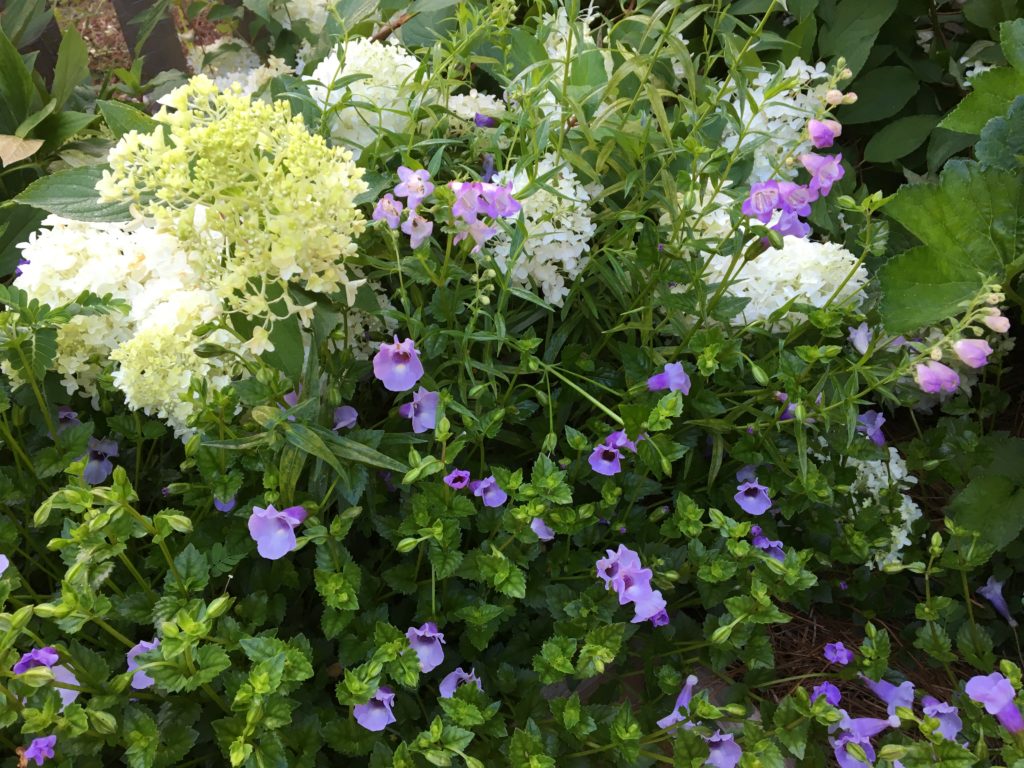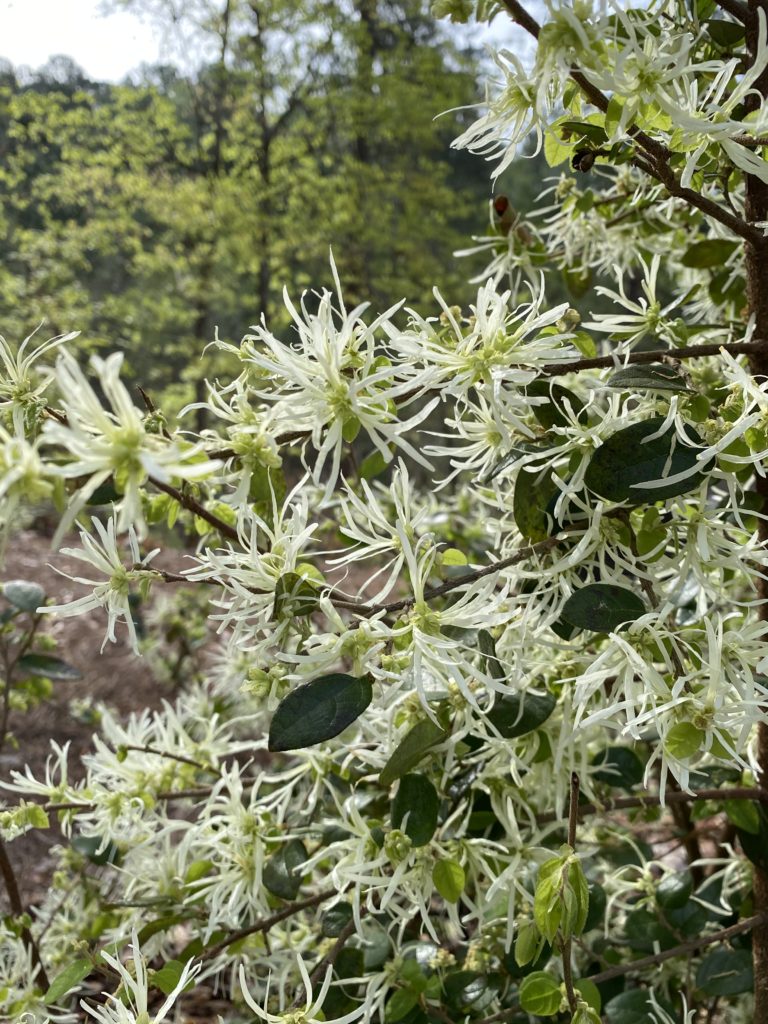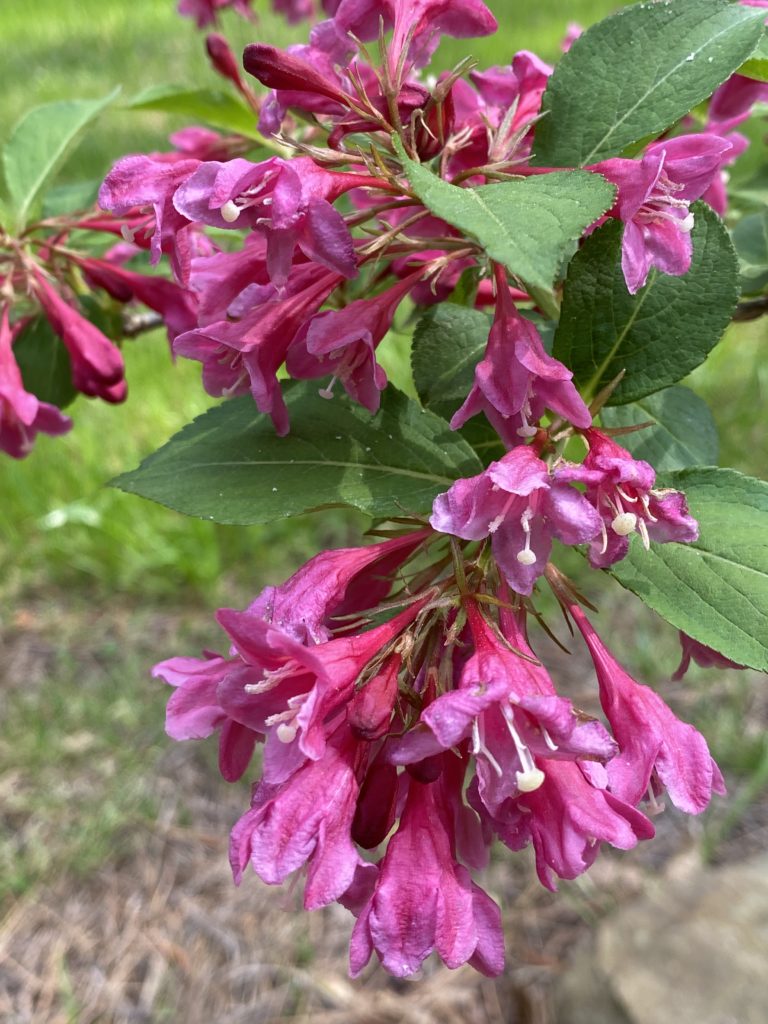
I fell hard for flowering shrubs during my first spring in the South. There is no doubt that the spring and summer borders of shocking-pink azaleas and voluptuous hydrangeas I saw around town led to my obsession with all things flowering. When I lived in the Midwest I was perhaps too preoccupied with the worries of the day to notice the ornamental shrubs blooming in the established gardens I drove by on my daily commute. Years later, as a stay-at-home mom with another child on the way, I found myself longing for branches full of blooms to cut and bring indoors, something I watched my own mother do each spring as the apple trees in our back yard began to flower.

Many years have passed, and I’m still besotted. Romance aside, when you look at it from a practical standpoint, flowering shrubs are worth every penny. They give instant height and bulk to new planting beds, which is satisfying to even the most seasoned gardener. A single five-gallon panicle hydrangea will likely put on quite a show, even in its first year in the ground. Pair that flowering shrub with a mass of perennials at her feet, and you have a seasonal display. Space out a trio of shrubs, with an edging of those same perennials, and you have a garden border. If you’re the type of person who loves showy flowers, but likes to keep things simple, this is a good strategy for you.

Here are some ideas for you to try in your own garden:
Plant Pairings for Sunny Areas:
White flowering quince + pink dianthus (the ‘Telstar’ series is a good one for the South)
Weigela (try the Sonic Bloom series) + salvia ‘Argentine Skies’
Mock orange + fluted coreopsis
Abelia + stokes aster
Panicle hydrangea (such as ‘Limelight’ for sunny gardens) + catmint
Plant Pairings for Areas in Morning Sun and Afternoon Shade:
White-flowering Chinese fringe + lenten rose
Paper bush + woodland phlox
Hydrangea ‘Annabelle’ + geranium ‘Rozanne’
Camellia japonica + greater celandine
A few more tips: When you match up flowering shrubs and perennials, choose those with the same light and moisture requirements. To get all of your plants off to a good start, be sure to amend your soil before planting with a few inches of compost.